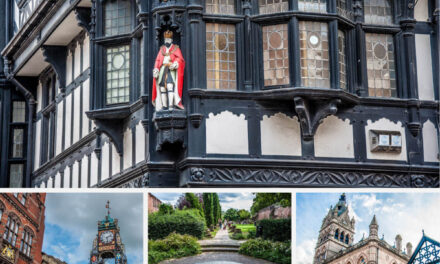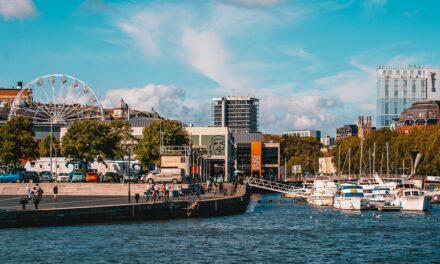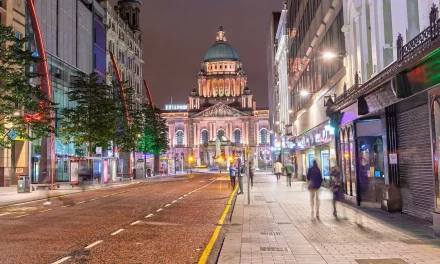Bolton
Recently, just as the Coronavirus was kicking off, Brenda and I went with the Richmond Hill Community Centre Friendship Group to Bolton for a fish and chip dinner at the Olympus restaurant.
The journey, in a mini-bus, was quite pleasant, but I think we were all aware of the imminent danger posed by the virus.
The meal itself was good (I had chips and peas) and then Brenda and I went for a walk around the centre of Bolton and visited the lovely aquarium and the interesting museum upstairs.
We then returned to the Olympus for a cream tea before returning back to Leeds, and then on by train to Halifax where I live.
I am now going to take a look at Bolton in more detail but am aware that its commercial landscape may change after this terrible pandemic.
Bolton (population in UK Census 2001 of 139,403) is a town in the North West of England and is in Greater Manchester – it is actually 10 miles northwest of the city of Manchester. There are several towns and villages around Bolton and these form the Metropolitan Borough of Bolton of which Bolton is the administrative centre.
Bolton’s history is an interesting one as there is evidence of Bronze Age human activity in the area, and the Romans were also there and built many roads around the town. It was later a Parliamentarian outpost, and was infamous as being the site of the Bolton Massacre which took place on 28 May 1644, when Royalist troops led by Prince Rupert of the Rhine killed 1,600 residents and took another 700 prisoners.
Bolton is a former mill town and has produced textiles since Flemish weavers settled in the area in the fourteenth century and introduced a wool and cotton-weaving tradition.
In the nineteenth century, urbanisation along with the efforts of inventors Richard Arkwright, Samuel Crompton and James Hargreaves brought improvement to the textile industry. Crompton invented the Spinning Mule which revolutionised cotton spinning, Arkwright invented the Water Frame and Hargreaves invented the Spinning Jenny. This led to Bolton becoming a nineteenth century boomtown i.e. in 1929, it had 216 cotton mills and 26 bleaching and dyeing works. This meant that Bolton was one of the most productive centres of cotton spinning in the world. Unfortunately, the industry declined rapidly after the First World War and by the 1980s, cotton manufacture had virtually ceased in the town.
Bolton’s heavy industries were replaced by service-based activities in the last quarter of the twentieth century like: data processing, call centres, hi-tech electronics and IT companies. It is important to note however, that some traditional industries still exist in the town. It is the home of Warburton’s bakery which was established in 1876 on Blackburn Road.
Interestingly, Bolton was awarded Fairtrade Town status on 13 February 2003.
Ordinarily, Bolton like other towns and cities in the UK, is a hub of commercial activity, but as things stand at the moment, no one really knows who or what will survive this crisis.
However, when better times return for us all, I am sure that it will still be worth visiting Bolton which has its own identity and landmarks like the Grade II listed Town Hall which is neoclassical in style and was designed by William Hill.
Bolton is featured within FTHM Issue 64
As you are aware in these hard times of Lockdown and Covid 19
money is difficult for many people.
Dean and Brenda are in high risk groups and not earning so if you could donate anything for this fabulous content you can easily do so at www.paypal.me/FTHM
Dean’s places is now on Hold due to lockdown and Covid 19 – More places will be published in the future, we just have no idea when. If you are interested in taking part in our latest competition then read about it here:
fromthehorsesmouth.org.uk/writing-competition-2020/





Recent Comments